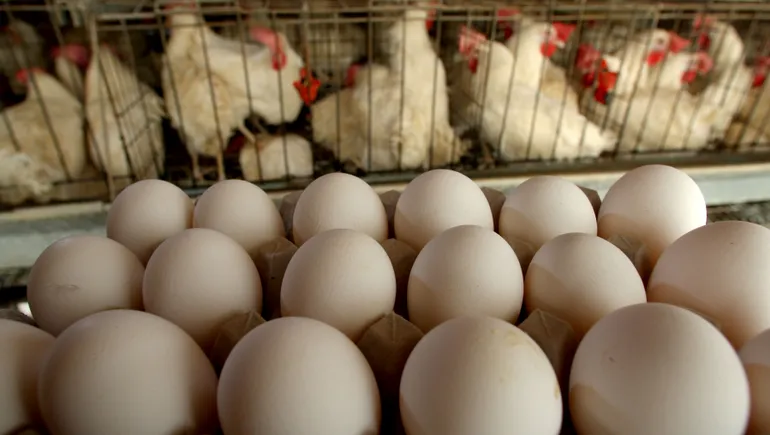Table of Contents
Post Holdings Faces Egg Supply Challenges Amid Bird Flu Outbreak
Post Holdings, a major player in the consumer foods industry, recently revealed that an outbreak of bird flu at one of its subsidiaries, Michael Foods, has significantly impacted its egg supply. The virus spread rapidly in December, leading to a 12% reduction in egg production and subsequent price hikes.
Michael Foods, known for being the largest processor of value-added eggs, reported the outbreak at a third-party facility in Iowa, resulting in the loss of 4.5 million birds. This setback affected approximately 12% of Post’s egg-laying hens, although executives remain confident that the losses are within their projected outlook for fiscal year 2025.
Impact on Egg Prices
The bird flu outbreak at Michael Foods is just one of many that have plagued commercial egg operations over the past year. This surge in cases has driven up prices, particularly during the high-demand holiday baking season.
According to the U.S. Department of Agriculture, over 36.5 million egg-laying hens across 12 states have been lost due to bird flu outbreaks and facility fires. The aftermath of these incidents has led to sharp price increases, reminiscent of the record highs seen in 2022.
Wholesale egg prices, which peaked at $5 per dozen in 2022, are currently averaging around $4 per dozen, up from less than $3 in October. The impact of these price hikes is being felt across the industry, with brands like Abbotsford Farms and Easy Eggs, both under Michael Foods, also grappling with the challenges posed by bird flu.
Future Concerns and Containment Efforts
Post Holdings has indicated that it will only provide updates on the outbreak if losses exceed an additional 5% of its controlled supply of hens. The company’s cautious approach reflects the ongoing threat posed by bird flu, which has not only affected conventional egg-laying hens but has also spread to cage-free and organic operations.
The USDA has taken steps to enhance monitoring and containment efforts, including increased testing of the national milk supply. The fear of a potential bird flu pandemic looms large, especially as cases have been reported in dairy cows, pigs, and humans across the United States.
Human cases of bird flu have emerged in states like California, Louisiana, and Oregon, prompting heightened vigilance and information sharing to prevent further spread of the virus. The intersection of animal and human infections underscores the urgent need for coordinated efforts to contain and mitigate the impact of bird flu.

